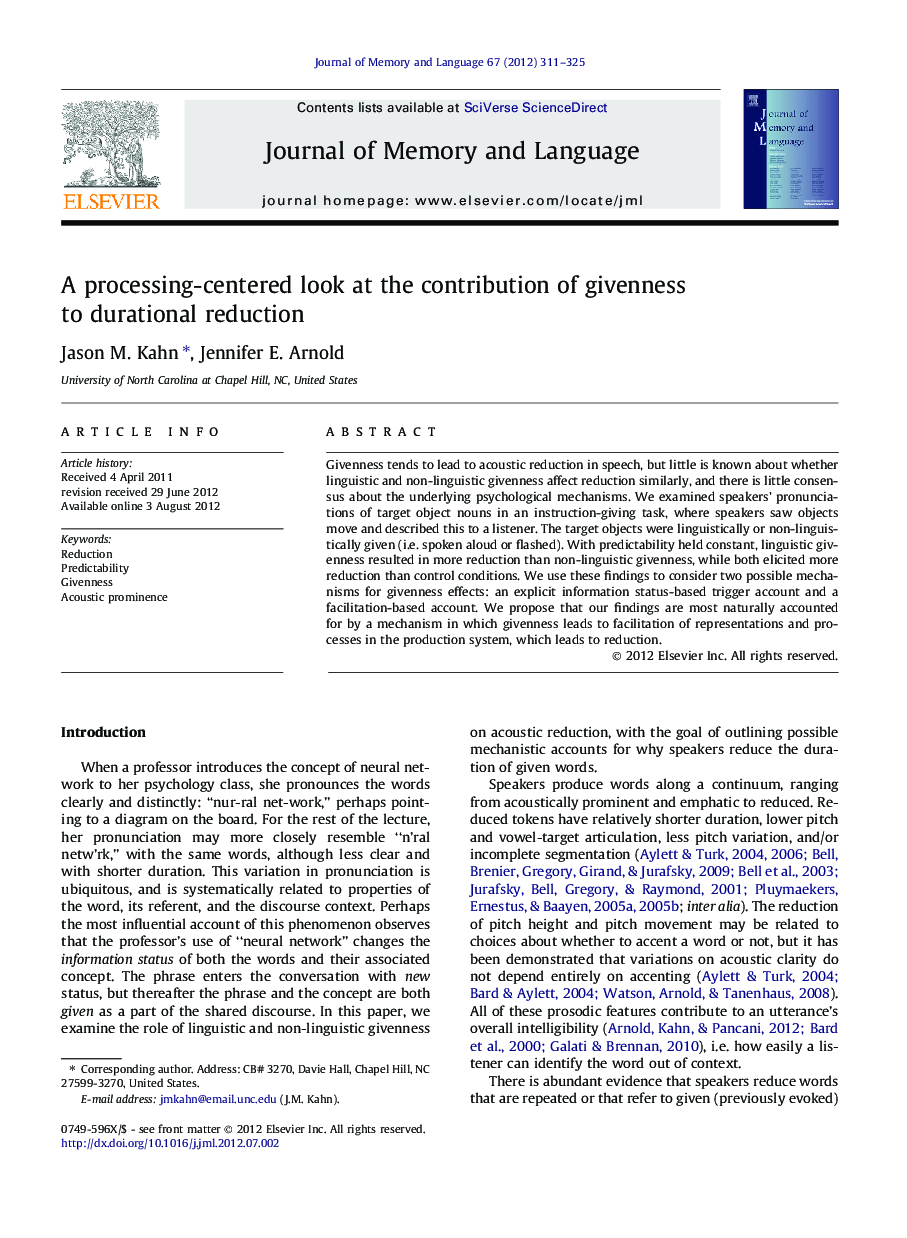| Article ID | Journal | Published Year | Pages | File Type |
|---|---|---|---|---|
| 931984 | Journal of Memory and Language | 2012 | 15 Pages |
Givenness tends to lead to acoustic reduction in speech, but little is known about whether linguistic and non-linguistic givenness affect reduction similarly, and there is little consensus about the underlying psychological mechanisms. We examined speakers’ pronunciations of target object nouns in an instruction-giving task, where speakers saw objects move and described this to a listener. The target objects were linguistically or non-linguistically given (i.e. spoken aloud or flashed). With predictability held constant, linguistic givenness resulted in more reduction than non-linguistic givenness, while both elicited more reduction than control conditions. We use these findings to consider two possible mechanisms for givenness effects: an explicit information status-based trigger account and a facilitation-based account. We propose that our findings are most naturally accounted for by a mechanism in which givenness leads to facilitation of representations and processes in the production system, which leads to reduction.
► Non-linguistic givenness creates durational reduction when paired with predictability. ► Linguistic givenness creates durational reduction when paired with predictability, or on its own. ► Linguistic givenness creates more reduction than non-linguistic givenness. ► An activation-based model accounts for these findings more adequately than a discourse-status-based model.
